Feeding The Convalescing Horse
Box rest often means a sudden change in routine for your horse and this can lead to stress. Veterinary treatment will be the most important factor in recovery however correct nutrition can help to aid the recovery process.
FORAGE
SHOULD FORM THE MAINSTAY OF ANY HORSES’ DIET
Forage should be provided on an ad-libitum basis or at least at 1.5% of body weight, to help avoid boredom and the risk of the development of stereotypic behaviours such as crib-biting and weaving. Insufficient fibre in the diet will also show itself in wood chewing.
Ensuring that the horse can trickle feed will also help with continual saliva production, which will help to reduce the risk of ulcers developing. Providing forage on an ad-libitum basis is ideal but many horses are good doers and it requires a little initiative to find ways of reducing intake while extending eating time. Here are some ideas:
- Double netted small holed hay nets
- Several hay nets around the stable
- Supplementing some of the hay for a low-calorie chaff
- Supplementing some of the hay with some SUPER FIBRE CUBES in a small pile of hay
- Replacing some of the hay with SUPER FIBRE CUBES in a treat ball
One of the main objectives is to make the transition from the ‘competition or working’ diet to the ‘rest and recovery’ diet as smooth as possible to avoid any potential digestive upsets.
Horses that had regular access to grazing will have to adapt to eating hay/haylage which has a much lower water content, higher dry matter, and reduced digestibility. This combined could lead to impaction colic if adequate water intake is not maintained. Fluid intake can be promoted by soaking hay and by feeding other high moisture feeds such as RE-COVERY MASH, soaked sugar beet or SUPER FIBRE CUBES.
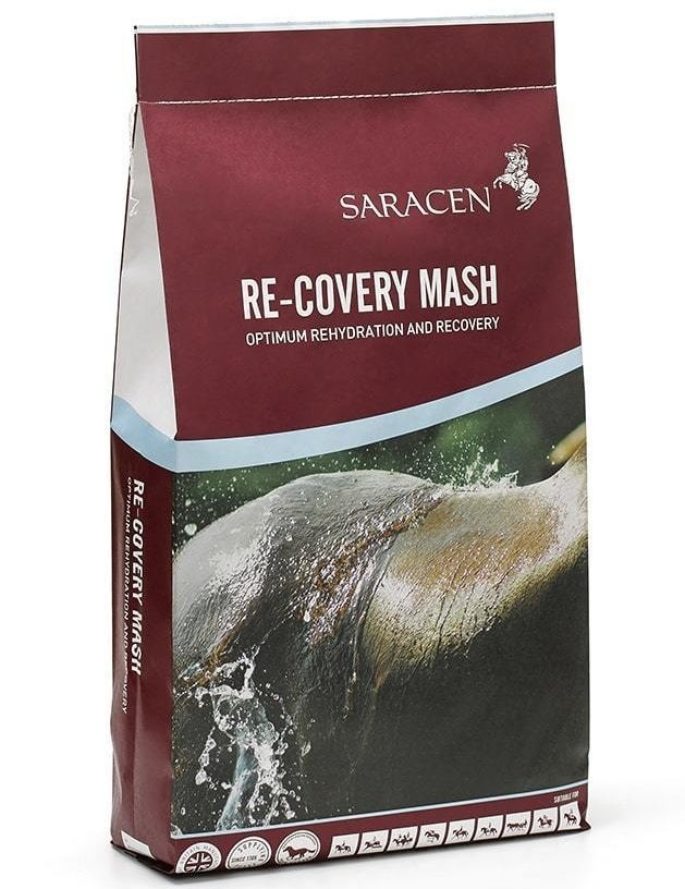
RE-COVERY MASH contains a blend of ’Super-Fibres’, known for their superior digestibility and provision of non-heating calories, plus a source of electrolytes to aid re-hydration. The ‘Super-Fibres’ top up the horse’s fibre and water intake and, together with electrolytes, help to maintain optimum hydration and thirst response. RE-COVERY MASH also includes a live yeast to support gut flora and stabilise the pH of the gut, as well as vitamin E to support normal immune function and recovery.
Top Tip: Providing access to a salt lick and adding 2 ounces of salt per day to your horse's feed will help to keep the thirst response stimulated, which will help to keep your horse hydrated.
CONCENTRATE FEED
FEED LITTLE AND OFTEN AND MATCH THE RIGHT FEED TO THE HORSES REQUIREMENTS
During times of enforced stabling and box rest the diet change needs to be made quickly (3 - 4 days), which provides a major challenge for the gut microflora. The use of digestive aids such as a probiotic or yeast can be helpful especially if your horse is receiving antibiotics or other drugs.
Feeding your horse will not only have to serve to meet his maintenance requirements but must also provide additional support for the healing and repair process.
Suitable feeds for these situations are those that are high in digestible fibre sources, such as soya hulls, alfalfa, and sugar beet. These feeds are non-heating, so help to maintain a more manageable temperament. Mixing feed with a quality chaff will also help to extent eating time. Alfalfa is a good chaff to use because of its quality protein content. Suitable products include:
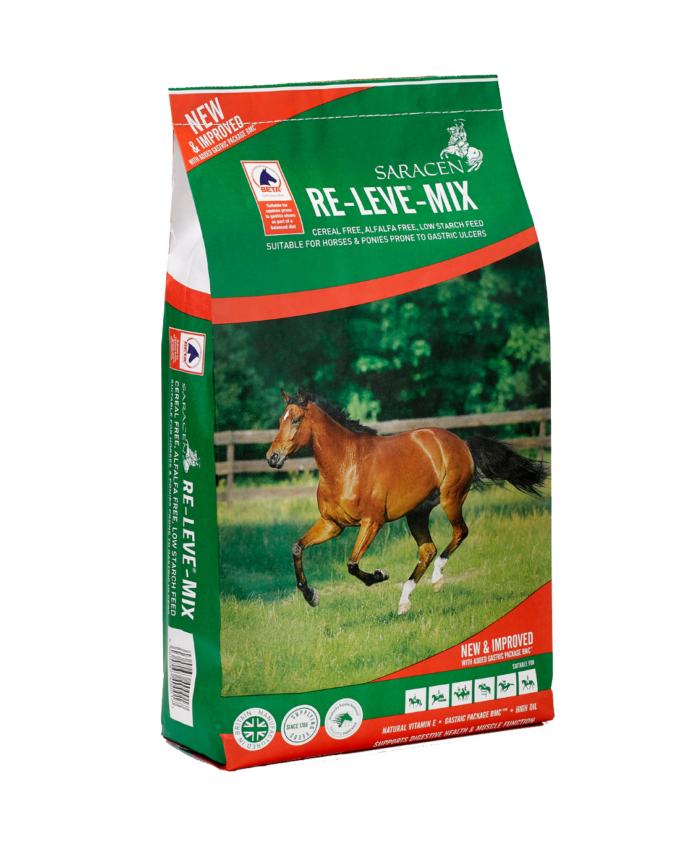
RE-LEVE®-MIX is a high-fibre, low-starch, cereal-free ration. Highly digestible "Super-fibres" and oil supply the energy and calories. RE-LEVE®-MIX is fully fortified with a concentrated source of proteins, trace elements as well as a yeast to support optimal fibre digestion, and elevated levels of important antioxidants Vitamin E and selenium to support optimal immune function.
SUPER FIBRE CUBES have a low-starch and sugar content and are cereal free, helping to maintain an even temperament, as well as supporting good digestive health. They are based on "Super-Fibre" sources to maintain digestive health and are fully fortified with a full spectrum of vitamins, minerals, and quality proteins.
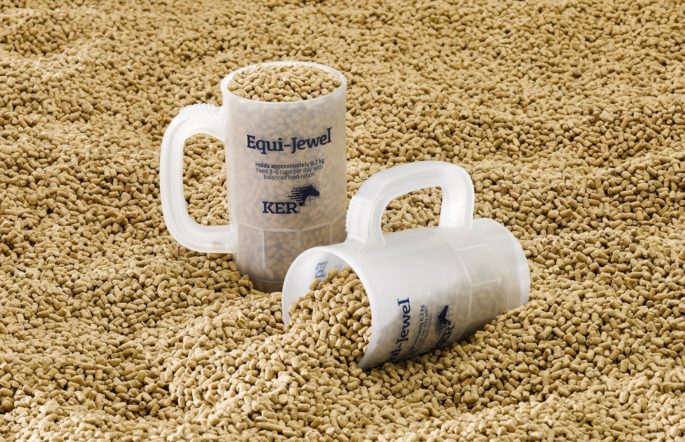
For horses that require additional calories to aid in correct weight maintenance, oil can be added to the diet to provide a ‘cool’ source of calories to help maintain temperaments.
Equi-Jewel® is a pelleted, high-oil, stabilised rice-bran supplement designed to increase the calorie density of any ration. Equi-Jewel® is fortified with the correct level of Vitamin E and ensures optimum calcium to phosphorus ratio.
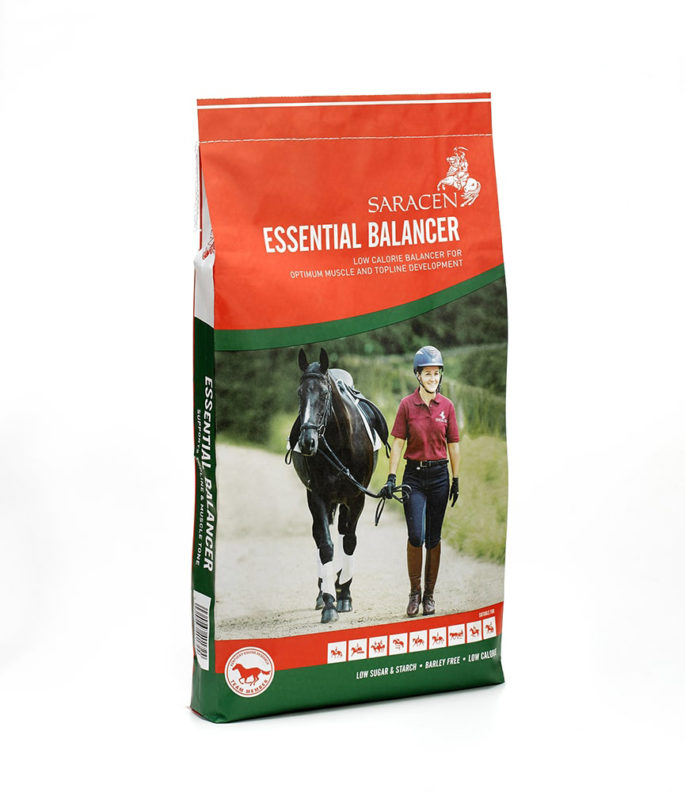
If your horse is a good doer and doesn’t require the full intake of a compound feed to maintain their weight, feeding balancers are often a better option as they ensure the horse is still receiving adequate nutrition along with quality protein to support healing and recovery.
ESSENTIAL BALANCER is a low-sugar, low-starch balancer that can be fed alongside compound feeds being fed below the manufacturer's recommended levels, or to balance forage only diets. Dense in vitamins, minerals, and quality protein sources, ESSENTIAL BALANCER helps to maintain muscle tone as well as supporting optimum health and vitality. A source of Omega 3 fatty acids helps to condition and shine the coat, and a blend of yeast cultures is also included to support a healthy digestive tract.
ANTIOXIDANTS
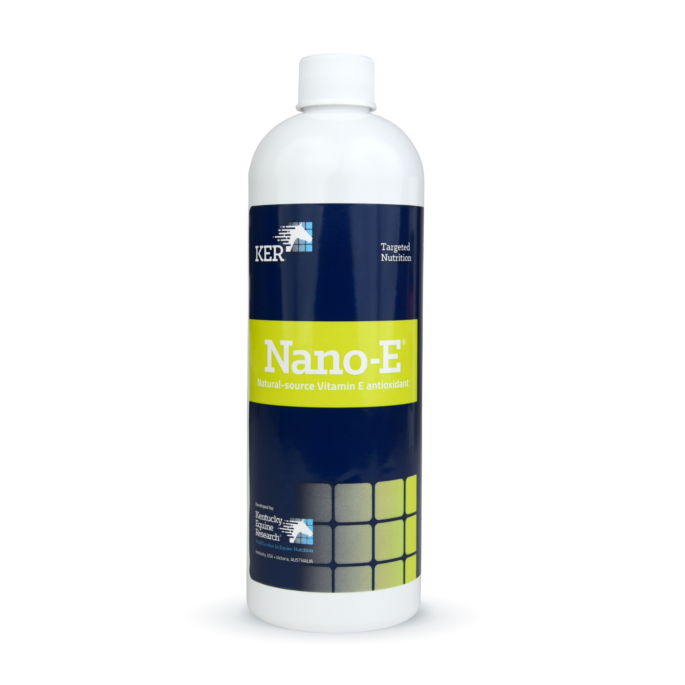
Horses with no or severely restricted access to pasture benefit from supplementation with vitamin E, which has also been proven to help maintain a healthy immune response e.g. Nano-E™.
NANO-E™ is a natural source vitamin E and research has shown that natural vitamin E is preferentially absorbed and retained by the horse compared to traditional synthetic sources. Antioxidants, such as vitamin E can help to fight free radical formation and aid the healing process whilst supporting immune function.
Top Tip: Keeping your horse occupied whilst on box rest can help with their mental wellbeing and stave off boredom. Offering small frequent meals, using treat balls, and frequent grooming sessions can help to keep your horse occupied.
EXTRAS?
Some horses lose their appetite, and this can be very frustrating and worrying for you as the owner.
Keep concentrate feeds very small, offering a handful at a time if necessary, and adding warm molasses or even a bran mash can sometimes help to break the fasting pattern. Freshly picked grass is usually enough to perk up picky feeders and hiding sliced apples and carrots in hay nets can help provide enrichment in an otherwise boring environment.
Download a PDF of this fact sheet for future reference.
Download nowFeed Advice Form
Complete our online form to receive a detailed nutritional plan for your horse or pony from one of our registered nutritionists.
Quick Feed Finder
Use our quick and easy feed finder as a guide to select the right feed for your horse or pony.











